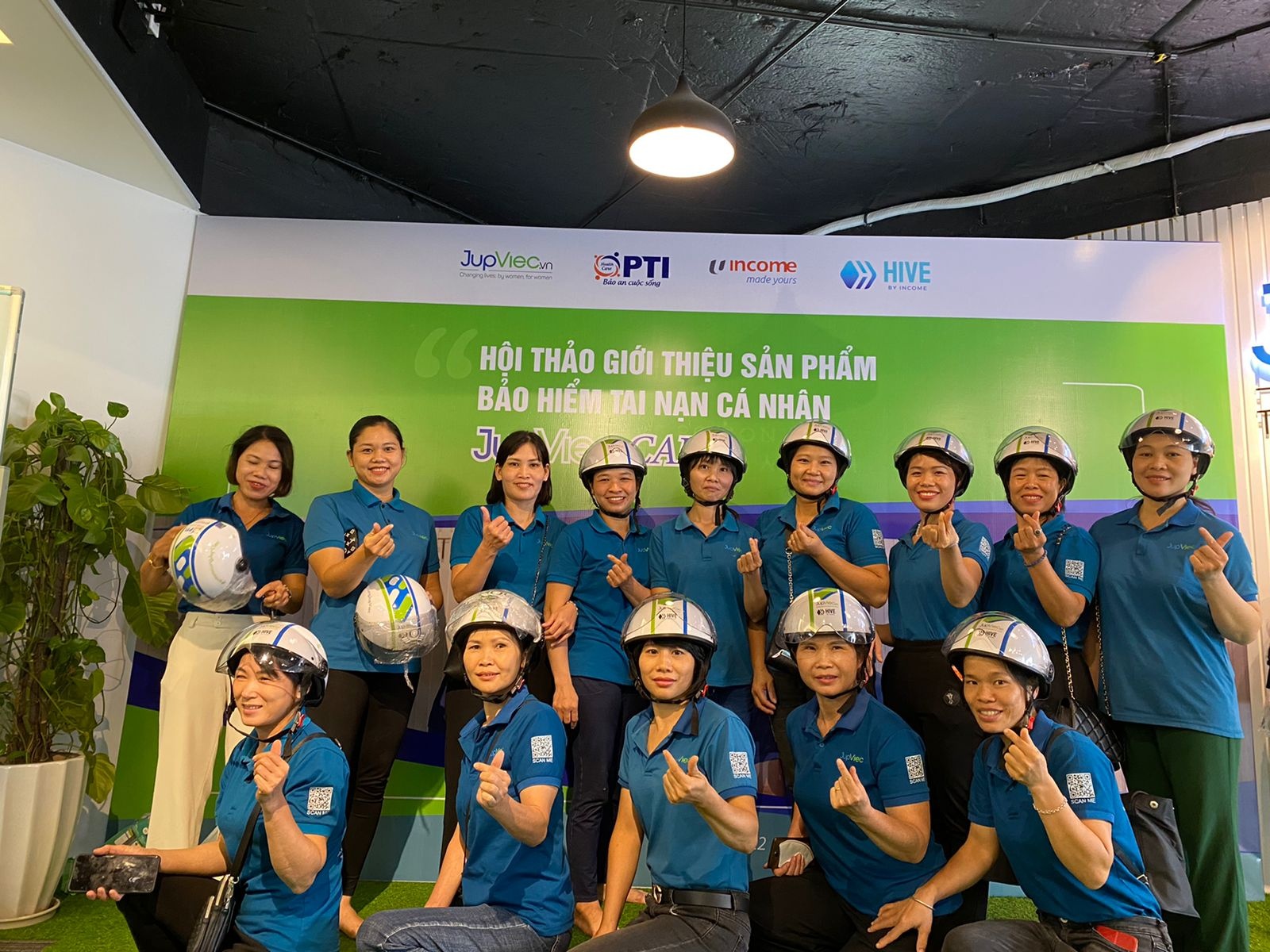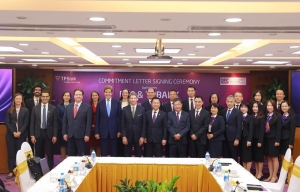Income Insurance explores strategic partnership opportunities to expand in Vietnam
 |
| A session for JupViec's helpers to join JupViec Care |
Income Insurance entered into a partnership with Vietnamese household service platform JupViec and non-life insurer PTI to launch JupViec Care in August 2022, offering microinsurance packages for gig workers on the JupViec app. Today, 40 per cent of JupViec's helpers have already signed up for JupViec Care to protect against workplace accidents.
In October 2023, Income Insurance also collaborated with TPBank and PTI to launch TPBank PA+, a microinsurance package targeting tech-savvy customers using TPBank's digital services. With TPBank PA+, PTI can issue microinsurance policies for customers when they make an online transaction via the digital bank.
Peter Tay, chief digital officer at Income Insurance said, "We will grow strongly with these existing partners by launching more products in Vietnam. We also hope to get into more strategic tie-ups with like-minded partners in the country. In particular, we welcome any potential M&A opportunities to tap into the potential of the Vietnamese market."
Founded in 1970, Income Insurance leads the non-life insurance sector in terms of market share and ranks fifth in the life insurance segment in Singapore. Overall, the company covers more than 2 million policyholders, which is almost half of Singaporeans. As a pure Singapore-based insurer, Income Insurance has started to build its digital capabilities over the last seven years and venture into insurtech.
The foray into Vietnam is part of the company's broad strategy to expand its digital capabilities in Southeast Asia. Through HIVE by Income, an Insurance-as-a-service platform, the company will support its partners to launch digital insurance products with its technology, product design, and digital innovation. This will contribute to the digital transformation of the traditional insurance market.
"We are reimagining insurance in a digital world. We have products ready to launch in the Vietnamese market now, such as stackable, subscription, and usage-based insurance. Partners don't have to go through the trial and error and all the mistakes that we have made to digitalise our insurance services. With digital insurance solutions, we can definitely help our partners accelerate their digital transformation journey," Tay said.
The e-Conomy SEA report released at the start of November by Google, Temasek, and Bain & Company reveals that Vietnam's digital economy is also on track to reach approximately $45 billion by 2025. Within this, digital insurance is one driver of growth. It is forecast to increase by 28 per cent, from $100 million in 2023 to about $200 million in 2025.
According to Tay, while many industries have been disrupted by technology, it has been slower for insurance to become digitally enabled. The main reason is that there are many barriers to disruption, as the industry involves a lot of regulations, risk management, and heavy capital requirements. Insurance is really the last piece of the puzzle in the digital economy.
"The digital economy growth will open up opportunities for insurtech players like Income Insurance. The more consumers get acquainted with online shopping, ride-hailing apps, web-based travel agents, and digital payments, the easier it is for insurtech firms to embed digital insurance for customers. All the developments will help the world of digital insurance, especially microinsurance," he said.
Microinsurance can help attack the problem of the unserved and underserved, and many Vietnamese people are informal workers. The Vietnamese government also aims to have 15 per cent of the population covered by life insurance by 2025.
Looking at the entire population, there will be a group of people that traditional insurance will never be able to help as they do not have the required funds. Other groups may have already bought one insurance policy, and buying a second would be too expensive for them. Thus, they can opt for a microinsurance policy to complement their existing portfolio.
"Microinsurance will make digital insurance products accessible to the underserved. With a small sum of money, customers can sign up for packages on the apps and stack up their coverage. There is huge potential for this to make a difference in both developing and developed countries by lowering the barriers for access to insurance. We are very bullish about microinsurance, which it is why we have heavily invested in this field," Tay stressed.
 | Foreign insurtech businesses praise Vietnam’s potential Foreign insurtech firms are seizing the opportunity to venture into Vietnam, driven by the country’s accelerated digital transformation and growing appetite for innovative insurance solutions. |
 | Insurtech groups utilise Vietnam for ambitious plans Driving the digital revolution in Southeast Asia’s insurance sector, foreign insurtech companies have identified Vietnam as a burgeoning epicentre for industry innovation and growth. |
 | DFC to grant $100 million loan to TPBank TPBank, one of Vietnam’s leading commercial banks, has announced the signing of a letter of commitment for a $100 million loan with a 7-year term from the US government’s Development Finance Corporation (DFC). |
What the stars mean:
★ Poor ★ ★ Promising ★★★ Good ★★★★ Very good ★★★★★ Exceptional
Related Contents
Latest News
More News
- Non-life insurers face mounting pressure after typhoon hits motor sector (October 02, 2025 | 18:59)
- Prudential Vietnam delivers responsible investment package (September 25, 2025 | 10:37)
- Insurers struggle to keep pace with EV rapid adoption (August 29, 2025 | 17:12)
- Non-life insurance market in sees bright spots in H1 despite rising challenges (August 28, 2025 | 16:21)
- Life insurance rebounds with renewed growth and trust (August 06, 2025 | 18:04)
- Global Care launches Vietnam’s first insurance KOL platform (July 25, 2025 | 09:42)
- Liberty Insurance leaves mark at 2025 Insurance Asia Awards with dual wins (July 14, 2025 | 07:27)
- New CEO takes helm at Prudential Vietnam (July 07, 2025 | 17:51)
- Vietnam's insurance sector reaches turning point for global integration (June 24, 2025 | 09:00)
- Sun Life Vietnam increases charter capital to over $700 million (May 28, 2025 | 19:14)

 Tag:
Tag:




















 Mobile Version
Mobile Version